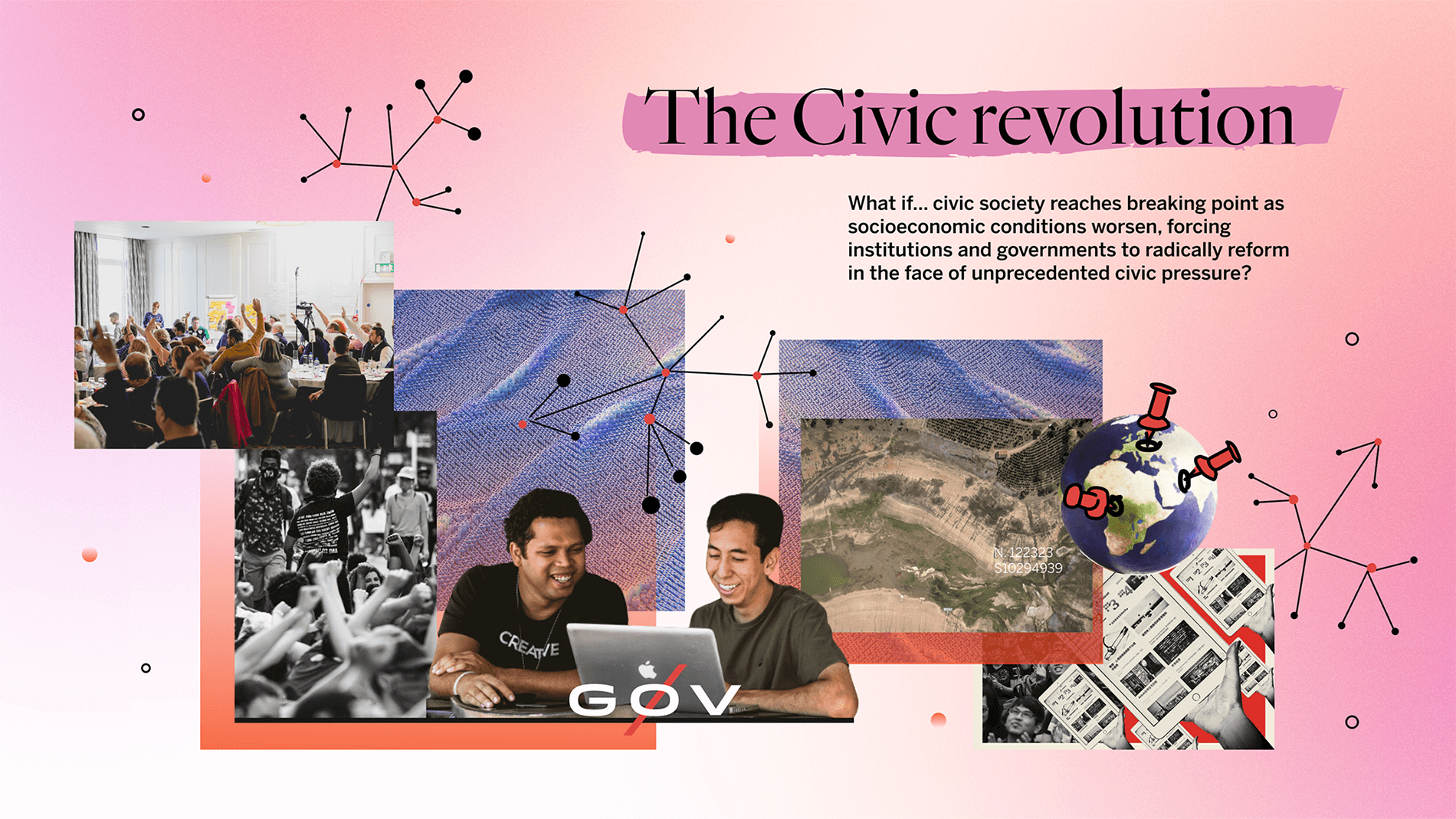UN OCHA Centre for Humanitarian Data
Shaping Data-Driven
Humanitarian Futures
How foresight helped a pioneering team shape the future of humanitarian data
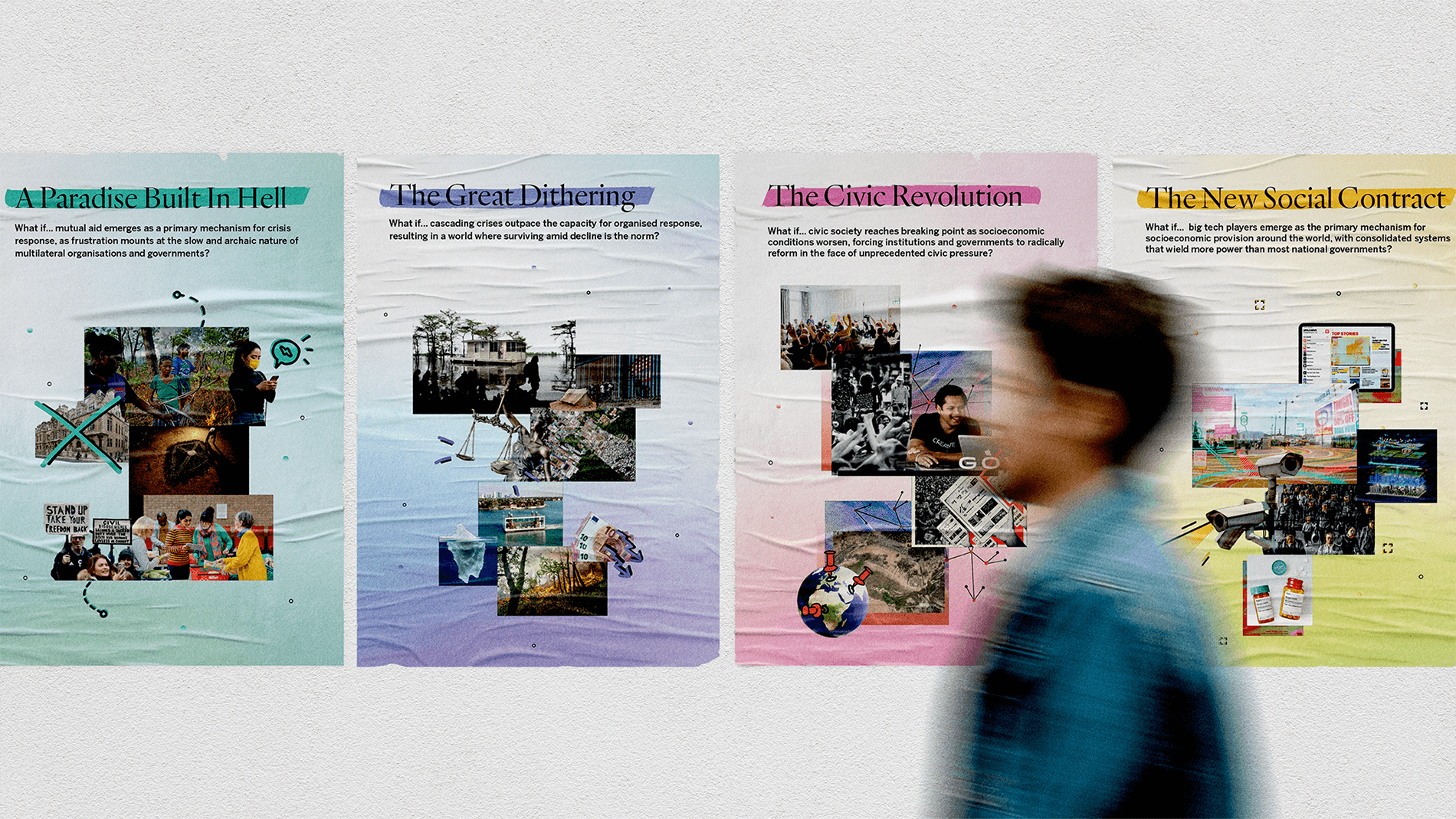
Service and Offer
Studio
Shaping new futures
The UN OCHA Centre for Humanitarian Data has been at the forefront of an important shift over the last five years–driving the availability (i.e., easy access) and responsible use of data in humanitarian response to crises. In a sector where everyone is being asked to do more with less, developing an innovative future strategy that maximized the Centre’s impact was imperative.
The Centre team worked with frog to better see beyond obvious opportunities. Together, in 2015, we designed their flagship data platform, Humanitarian Data Exchange (HDX). Eight years on, we created a bespoke approach to the Centre’s future strategy, blending strategic foresight, three horizons and speculative design approaches to create and explore four insightful future scenarios. We looked broadly at global trends shaping the humanitarian data ecosystem (e.g., behavioral, political and legal). This led to a comprehensive set of drivers for the future and four distinct scenarios set in 2035.
All scenarios depicted increasing climate-change related crises and limited response resources (i.e., rooted in the sector’s realities). At our future-casting workshop, while exploring these scenarios, the Centre team had an “aha” moment. They recognized the existence and implications of multiple pathways, each able to identify new opportunity spaces that address the needs of new stakeholders and end-users, with whom the Centre did not currently engage. The future-casting approach informed a new long-term strategy with actionable, short-term milestones.
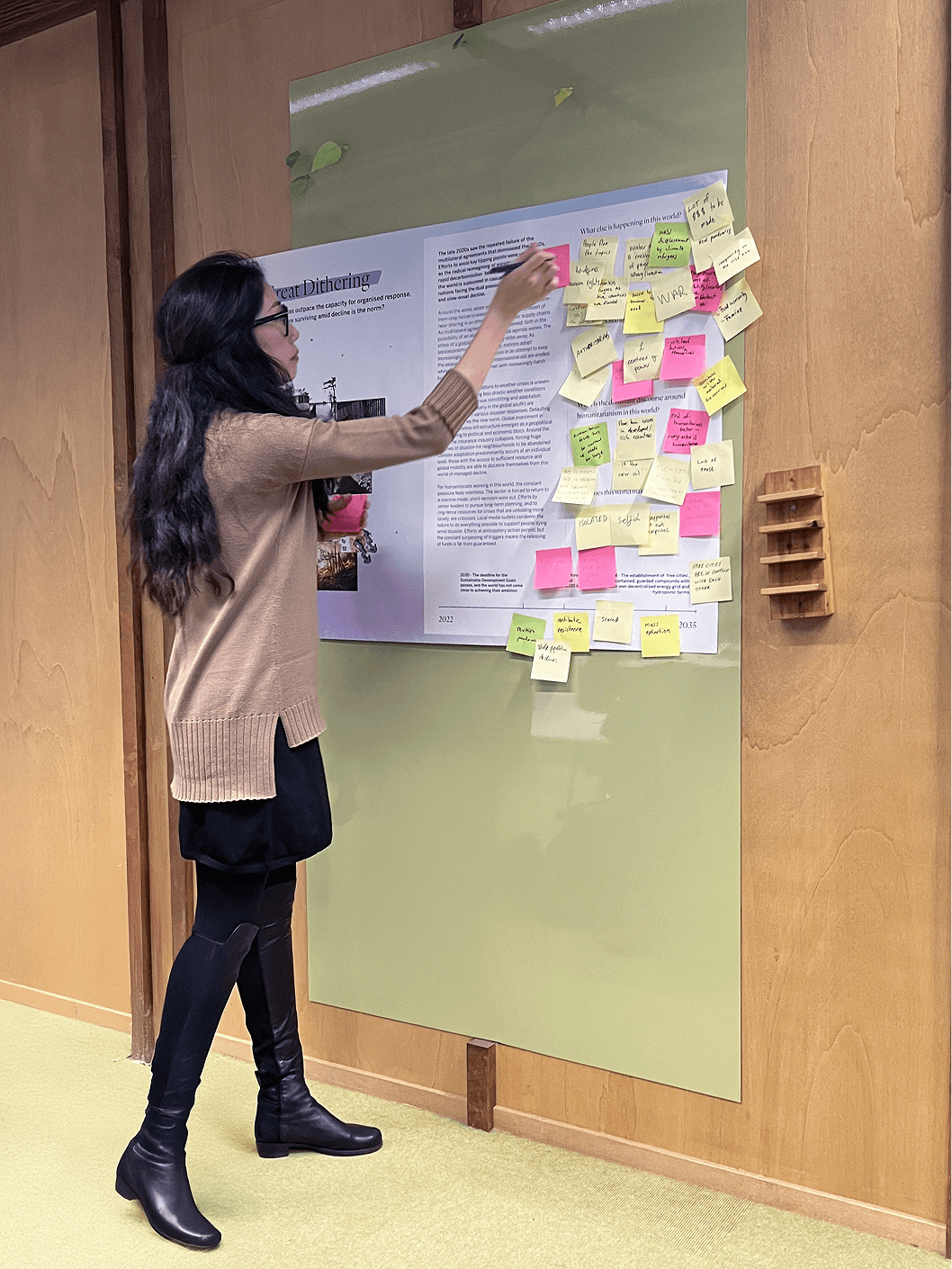
A strategy workshop was instrumental in the development of future scenarios.
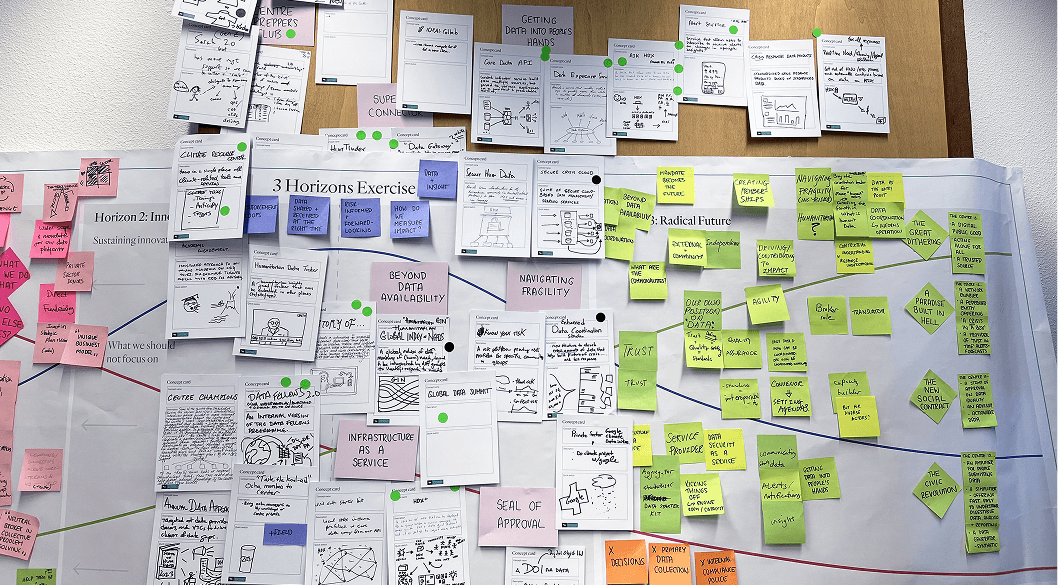
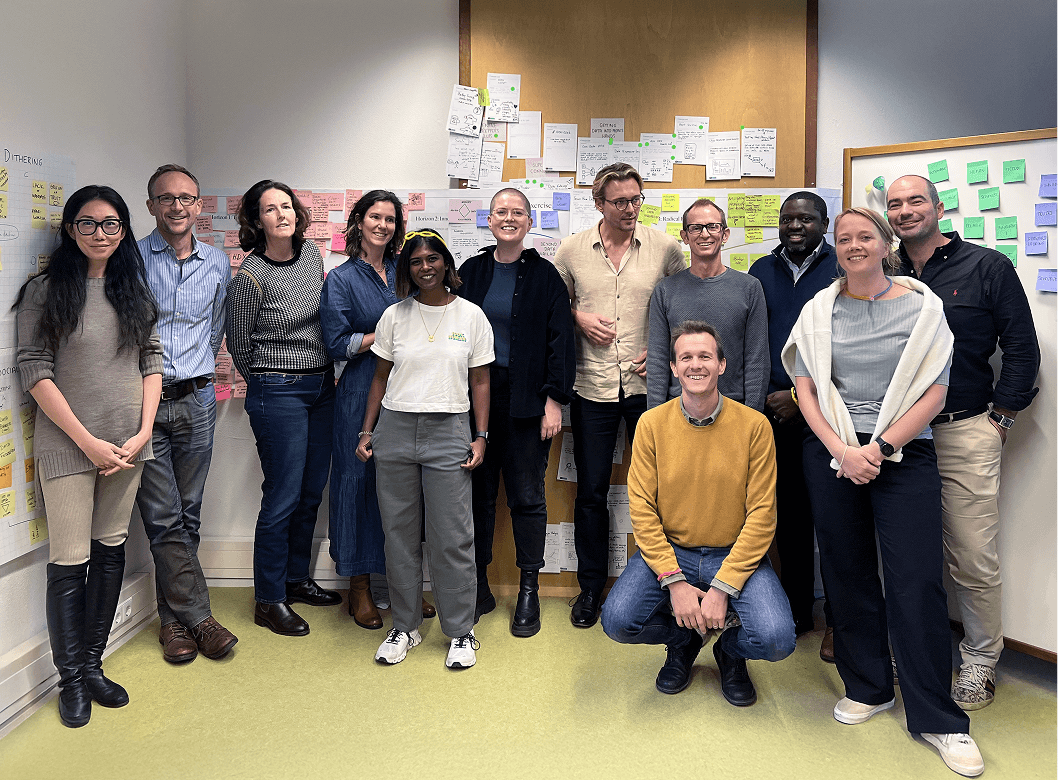
A strategy workshop was instrumental in the development of future scenarios.
Strategy Director and Head of UK Sustainability, Sesh Vedachalam (fourth from right), shared expertise that made complex issues understandable and relatable.
Strategy beyond the obvious
Project highlights
Challenge
Data-driven humanitarianism
The pioneering data team was successful and well regarded with partners but needed to look more broadly at potential opportunities and better leverage emerging tech. They needed to see around corners.
Solution
Shaping future scenarios
Our strategic foresight methodology mapped drivers of change in humanitarian data, informing four distinct scenarios set in 2035. Alongside three-horizon based ideation, the drivers developed the future strategy and organization design recommendations.
Outcome
Future-proof strategy
The Centre turned the strategy into a plan that expanded its work into new opportunity areas and added capabilities around data science, foresight and user research.
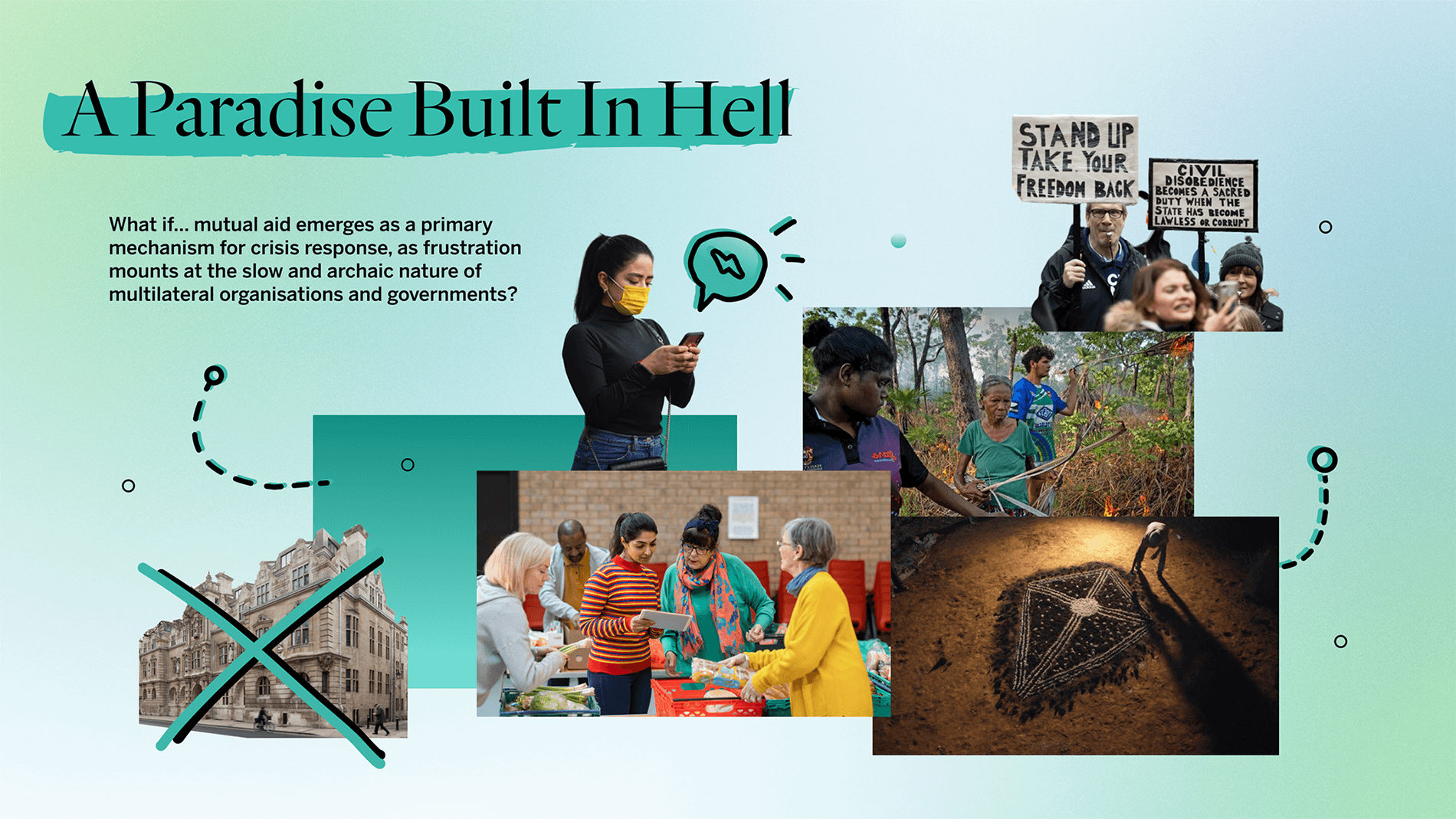
With frog as our partner, we were able to create a strong strategic roadmap that built on the strengths of the team today. Understanding the challenges of the future helps us to better deliver on our mission to increase data-driven decision making in humanitarian response.
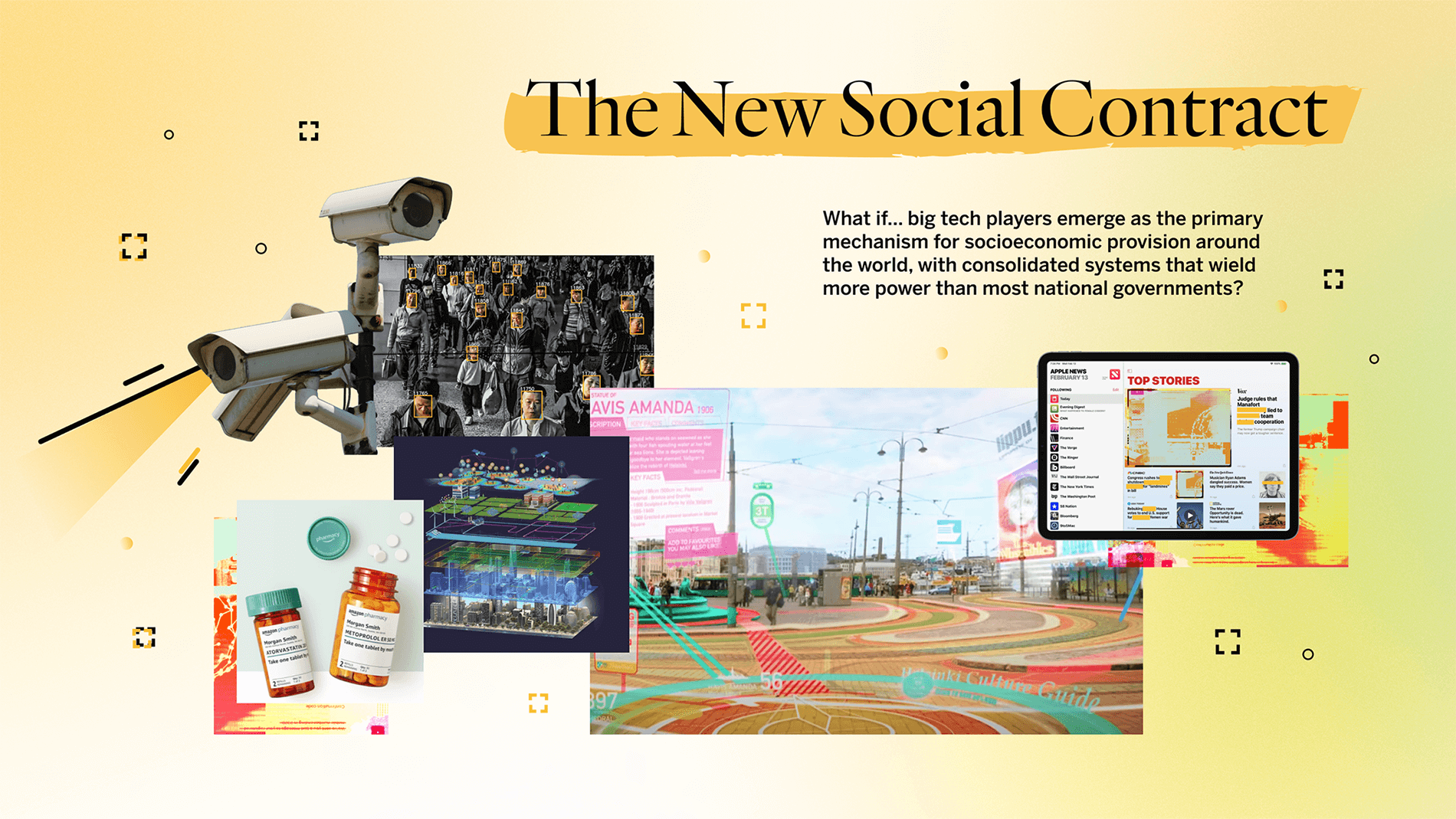
The frog approach
Executing a five-phase process
Immersion report
Reflections on the opportunities for the Centre to evolve, grounded in 36 stakeholder interviews and a document scan.
The scenarios
Several alternative futures for 2035 that can be used to engage stakeholders.
The strategy
A multi-year strategy with a focus on expanding into new opportunity areas that accelerate data-driven insight.
The operating system
A set of strategic recommendations to ensure ways of working, values and tools are in service of an innovative, collaborative culture.
Storytelling workshop
Our Strategy Director and Head of UK Sustainability, Sesh Vedachalam, joined a Centre-hosted forum to offer expertise on making complex issues more understandable and relatable.
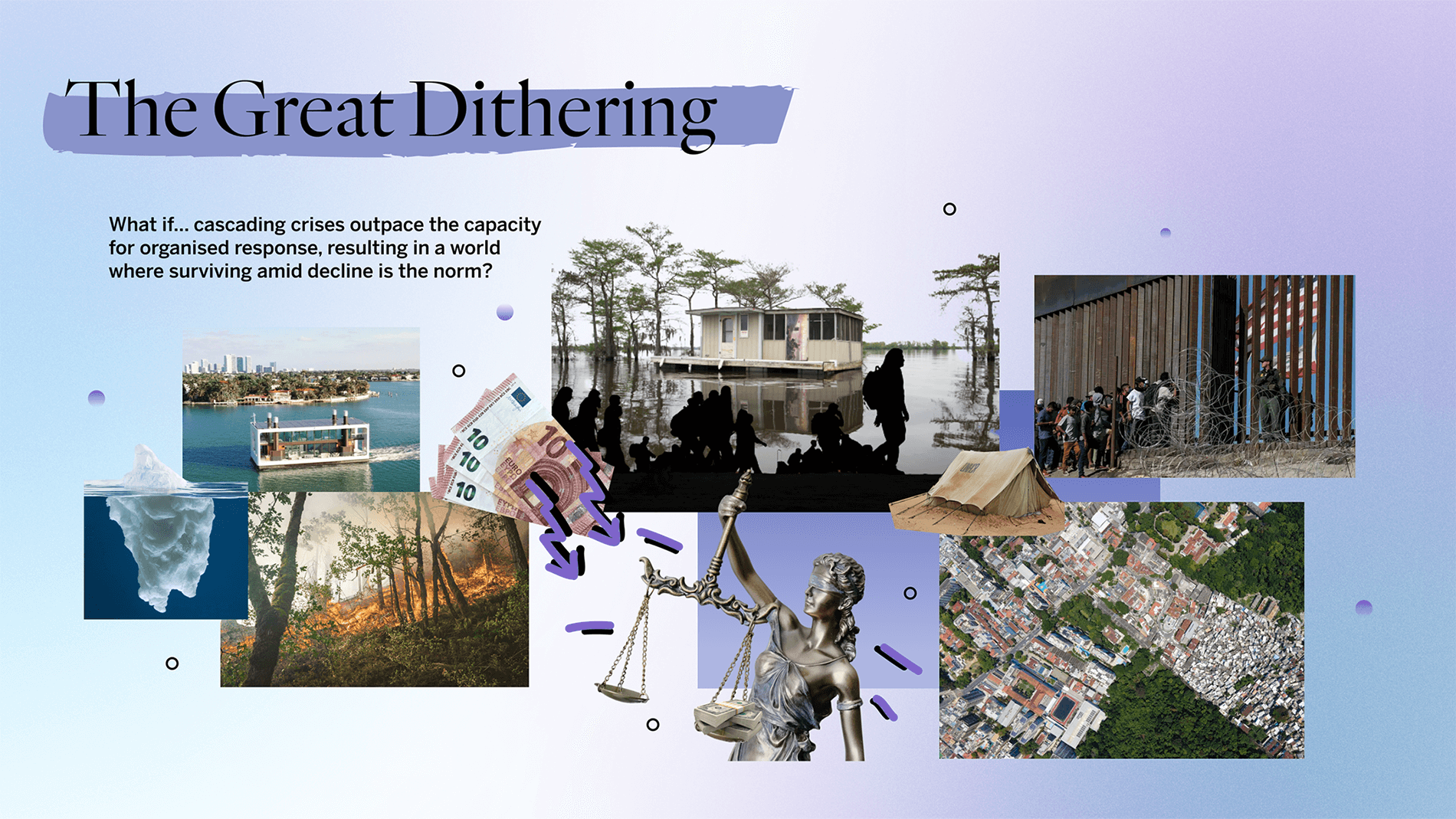
Rewriting the future
Cut from the same cloth, frog and the UN OCHA Centre for Humanitarian Data are likeminded network builders, bringing people together for collaboration with purpose. Using a wide range of foresight and future-casting tools, we worked together to imagine plausible futures, the Centre’s role in promoting positive action and the internal culture needed to navigate these scenarios.
Today, the Centre team has a future-ready strategy to rapidly capitalize on emerging, short-term opportunities while maintaining pragmatic, long-term thinking.

Following our collaboration, the Centre attracted new partners in its mission to increase the use and impact of data in the humanitarian sector.
